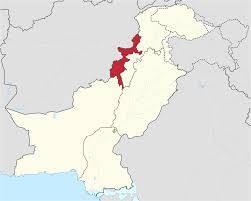Protests and Mourning in Parachinar Amid Sectarian Violence

In July , 2024, eight people, including five teachers, were killed in Parachinar, Khyber Pakhtunkhwa’s Kurram district, sparking protests and mourning. The violence, initially attributed to a land dispute, has left the community in shock.
Unidentified gunmen struck twice, first in Shalozan, killing one person, followed by a brutal attack at a school in Teri Mangal, claiming seven more lives. In response, the Kurram Teachers Association closed all schools and postponed exams. By the next day, Parachinar appeared desolate, with deserted roads and shuttered markets. Mourners took to the streets in sporadic protests, demanding justice and safety.

Teachers gathered at Israr Shaheed High School Parachinar to voice their outrage against the killings. "The protests will continue and the schools will remain closed until a proper investigation of the murders is carried out," said Sohail Zaman, a social studies teacher. He expressed frustration over the lack of protective measures for teachers despite strict administrative scrutiny on absenteeism.
The town's grief was compounded by the rising death toll from twin blasts in Quetta and Parachinar, which claimed 85 lives by the end of July . Over 200 people were injured, with 15 in critical condition. The blasts in Parachinar, particularly devastating, were designed to maximize casualties, with a second explosion targeting those aiding the victims of the first blast.
The Shia Muslim community in Parachinar has long endured severe violence and unrest. Situated in the Kurram District along the Afghanistan border, the area has witnessed repeated sectarian clashes between Shia and Sunni groups, exacerbated by local land disputes and broader geopolitical tensions. Extremist Sunni tribes and militants from groups like the Tehreek-e-Taliban Pakistan (TTP) have primarily driven the violence, which observers describe as a form of genocide against the Shia community.
Parachinar's history is marked by tribal and sectarian conflicts, influenced by its strategic location and the presence of militant groups. Despite efforts by local leaders and the government to mediate through tribal councils (jirgas), these attempts have largely failed to halt the violence.
The Pakistani government and local authorities face criticism for their inadequate response to the violence and their failure to protect the Shia minority. Calls for decisive action are growing, with demands to bring the perpetrators to justice and ensure the safety and security of the Shia population in Parachinar.
The violence and unrest in Parachinar highlight the urgent need to address sectarian tensions, land disputes, and extremist activities. The loss of lives, especially among educators and civilians, necessitates a comprehensive approach for justice, security, and peace. The Pakistani government, local authorities, and community leaders must collaborate to enhance security, promote inter-sectarian dialogue, and tackle socio-economic issues. International support is also essential to address broader regional dynamics.
